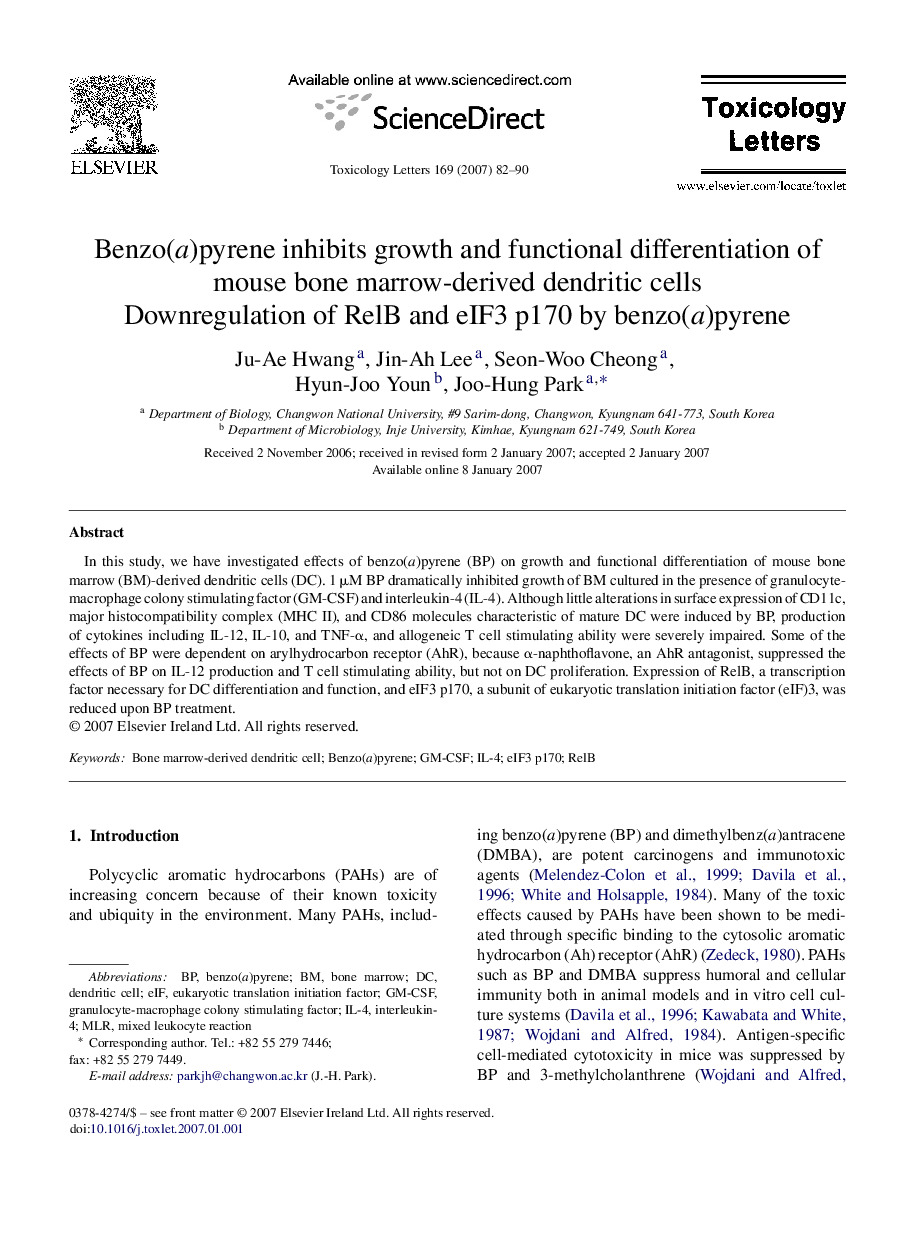| Article ID | Journal | Published Year | Pages | File Type |
|---|---|---|---|---|
| 2602177 | Toxicology Letters | 2007 | 9 Pages |
In this study, we have investigated effects of benzo(a)pyrene (BP) on growth and functional differentiation of mouse bone marrow (BM)-derived dendritic cells (DC). 1 μM BP dramatically inhibited growth of BM cultured in the presence of granulocyte-macrophage colony stimulating factor (GM-CSF) and interleukin-4 (IL-4). Although little alterations in surface expression of CD11c, major histocompatibility complex (MHC II), and CD86 molecules characteristic of mature DC were induced by BP, production of cytokines including IL-12, IL-10, and TNF-α, and allogeneic T cell stimulating ability were severely impaired. Some of the effects of BP were dependent on arylhydrocarbon receptor (AhR), because α-naphthoflavone, an AhR antagonist, suppressed the effects of BP on IL-12 production and T cell stimulating ability, but not on DC proliferation. Expression of RelB, a transcription factor necessary for DC differentiation and function, and eIF3 p170, a subunit of eukaryotic translation initiation factor (eIF)3, was reduced upon BP treatment.
